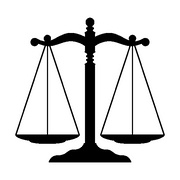
When you’re dealing with mounting debt, it can be difficult to cover all of your basic expenses while trying to pay back your creditors. To ease this burden, many people choose to take advantage of a debt settlement program or hire a bankruptcy attorney to help them file for Chapter 7 or Chapter 13. To determine which might be best for you, here’s a look at the differences between these two debt relief options.
Debt Settlement
To qualify for debt settlement, you must have a minimum of $7,500 in unsecured debt. With this option, a debt settlement provider or bankruptcy attorney negotiates with your creditors on your behalf to bring your outstanding balance down to an amount you can afford to repay. A good option for individuals who have a reliable income, debt settlement typically lasts between 2–4 years and does not require a court filing. It will affect your credit score and remain on your credit report for seven years.
Bankruptcy

Unlike debt settlement, which is a private process, bankruptcy is a legal process overseen by the court. As an individual, there are two types you can file for—Chapter 7 or Chapter 13. In addition to filing the petition and submitting all of the necessary paperwork, a bankruptcy attorney can help determine which type is right for you.
Chapter 13
This type of bankruptcy allows you to restructure your debts so that you can pay back what you owe over a 3–5-year period. Approved and monitored by the court, the repayment plan typically lasts between 3–5 years. Your credit score will be impacted and the bankruptcy will remain on your credit report for seven years. To qualify for Chapter 13, your unsecured debts cannot exceed $394,725 and your secured debts must be less than $1,184,200.
Chapter 7
Designed for people who have more debt than they could ever repay, Chapter 7 involves the liquidation of most of your assets to pay back your creditors. The process usually takes from 3–6 months to complete, and you must pass a means test to qualify. Filing for Chapter 7 will have a negative effect on your credit score and remain on your credit report for 10 years.
To learn more about the differences between debt settlement and personal bankruptcy, contact William A. McWhorter. For more than 20 years, this seasoned bankruptcy attorney has been helping clients throughout the Pell City, AL, area free themselves from debt and get a fresh financial start. Visit his website to learn more or call (205) 338-4411 to schedule a free consultation today.
About the Business
Have a question? Ask the experts!
Send your question

